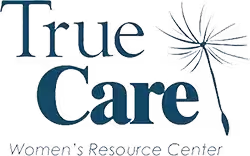According to Sciencedaily.com, a review of literature released in the March 14th Journal of Adolescent Health suggested that, “Oral contraceptives are popular, safe and effective methods of pregnancy prevention for women and teens. Our review emphasizes that any future over-the-counter pill has the potential to benefit teens, and there is no scientific rationale to restrict access based on age.” The review of published studies on contraceptives led the team to believe that “scientific evidence supports switching oral contraceptives from prescription-only status to over-the-counter (OTC) availability.”
If contraceptives help prevent pregnancy and are proven to be safe and effective for even teens to use over-the-counter, then why are they still prescription only?
There are Risks and Side Effects with Hormonal Birth Control
All medication has the potential for side effects. Hormonal contraceptives also have side effects and potential risks. Think about PMS and all of the associated symptoms…bloating, mood swings, increased acne, etc. Changes in hormones affect your body in dramatic ways. It is important for a woman or teen considering a hormone pill or injection to discuss the side effects and risks she can expect and weigh those risks with the potential benefit.
Here are three recent articles featured in Sciencedaily.com that talk about some pretty major risks associated with hormonal birth control.
- Quality of Life Lowered by a common birth control pill. This was a really interesting study that had women take either the real pills or placebo pills and they didn’t know which one they were taking. “The women who were given contraceptive pills estimated their quality of life to be significantly lower than those who were given placebos. Both general quality of life and specific aspects like mood/well-being, self-control and energy level were affected negatively by the contraceptives.” The well-being of the girls on birth control was lower than the placebo group.
- Risk for Breast Cancer in women currently using hormonal contraceptives increased in a recent study “by 50 percent” compared to women who never used or formerly used oral contraceptives.
- Risk for Blood Clots is also increased with hormonal contraceptive. VTE (venous thromboembolism) basically means a blood clot in the vein. These clots can block veins, causing pain and swelling, and they can also break loose and get carried to other parts of the body, causing a heart attack, stroke or a pulmonary embolism. “Compared with women not using oral contraceptives, women using older pills, containing levonorgestrel, norethisterone, and norgestimate, had about two and a half times increased risk of VTE. Women using newer pills, containing drospirenone, desogestrel, gestodene, and cyproterone, had around a four times increased risk of VTE.”
All of the risks and side-effects are serious and can have life-long consequences for women taking these medications. Having a doctor look at a woman’s overall health, check for contra-indications or other risk factors, and talk to a woman about the risks vs benefits is essential for the health of women considering birth control. These powerful hormonal medications should not be given out lightly but instead with medical judgement and a firm health need that outweighs the potential risks.
